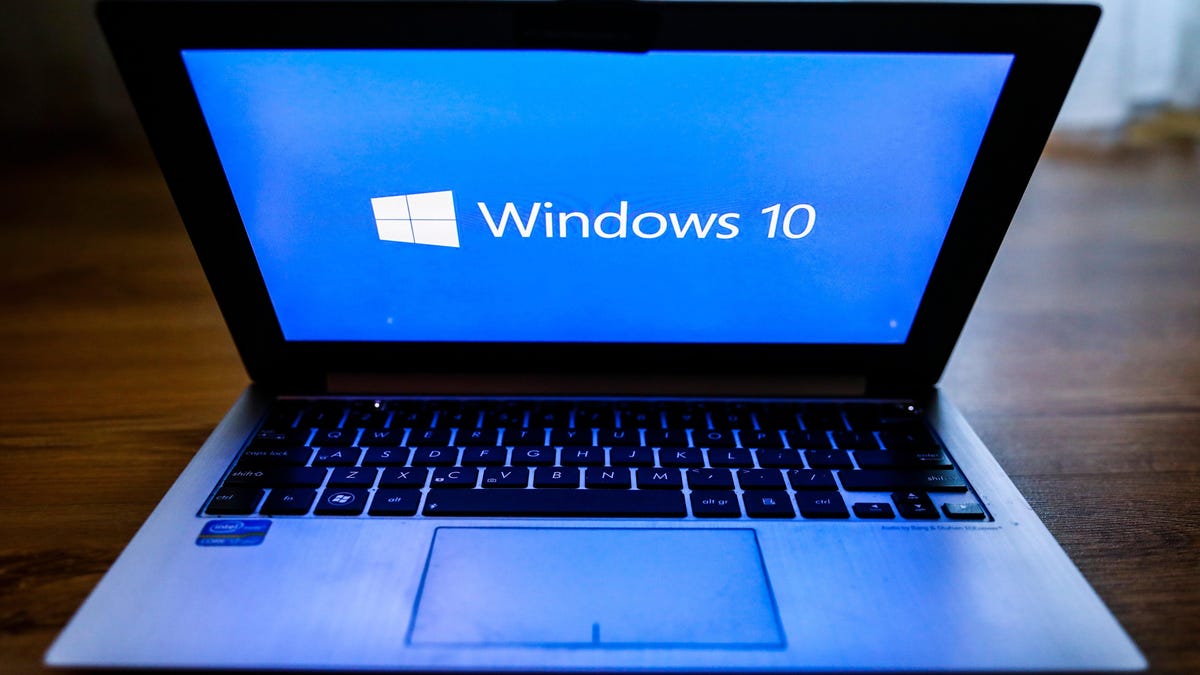Haven’t they always done this for corporate customers with EoL products?
Yep
Yeah, this is nothing new.
False; it’s now going to be offered to consumers, too.
That’s the entire article, you’re welcome.
Given that the alternative for consumers was to not get security updates at all, that’s pretty sweet. I’d either upgrade to Windows 11, or swap to Linux though.
deleted by creator
Yeah this is good news to me assuming the updates are priced like the service packs of yesteryear
The change this time around is not 3 more years having to code for IE9 😄
Gods, yes!
In this case machines sold as recently as 2020 are not supported and for the for the last 8 years since 10 came out old computers were less obsolete than in prior eras as SSD were already common and other than gaming or specialized apps computer software hadn’t become notably heavier.
Basically many of those now forcibly obsolete machines bought as late as 2020 would have been expected to be in service for years yet either as primary machines or hand me downs. Basically much bitching will be heard.
Phrased differently: Microsoft announces the end of support for a product. If you want to pay for it, they will make an exception and continue to support it just for you.
I understand people dislike Windows 11, but complaining about life cycle management isn’t going to help that.
Should have figured it was clickbait. They’ve done this with several previous versions after EOL security support ended AFAIK.
Will this lead to pirated security patches? What a strange timeline.
I’m pretty sure Microsoft has been patching pirated copies of Windows for decades at this point.
I live in a 3rd world country and I can promise you that this is going to lead to a large percentage of the population using an insecure version of Windows 10 or just using mobile devices.
I doubt many people here will switch to Linux, but I can only hope. Maybe businesses will do that instead of buying new hardware. Recently, I saw a shop using Banana Pis as their checkout terminal.
Is this because the free upgrade to Windows 11 is too large of a download?
MANY devices have hardware that’s just outright not supported by windows 11. Even CPUs just a few years old aren’t supported. I don’t own a single device that supports Windows 11, and my stuff isn’t exactly ancient. I imagine poorer countries have resold/used hardware in the majority of cases that aren’t new enough for it
It’s only in place upgrades that are really affected by that. You can still do a clean install on quite old hardware.
Or a lot of existing machines that meet Win 7’s specs running Win 10 aren’t compatible with Win 11.
In my case the Intel Core i7 processor family is not supported for windows 11. Granted my rig is over 6 years old but it still does everything I want it to and I have no reason to upgrade.
i7 isn’t a processor family its a marketing segment. Every generation of intel CPU has a i3 i5 i7. i7 means you have a nicer version of whatever year processor you have but you could have something 14 years old or released yesterday. I know it is absolutely confusing and awful and it makes it very hard to compare different generations without a spec sheet and benchmarks.
Yeah, i7’s (along with i5’s and i3’s) from the 1st to 7th gen aren’t supported, 8th gen has mixed support.
They still run 11 just fine in practice, but installation isn’t as straightforward.
This is wild, though I really should expect it.
I have a machine in the basement that I use solely to run Zwift (an online cycling program). Windows update says it’s not compatible, but I bought the machine in 2021, so it should be. My guess is that TPM 2.0 is disabled in BIOS, but I haven’t looked for it. I don’t recall what processor it has, nor should I really need to care.
If the processor is older, while reading this thread, I’ve seen that it likely is likely to work fine, even if Windows Update claims it isn’t, but I might have to install it differently or edit the registry. So, basically, it can be done, but Microsoft is making it harder than it has to be. And Windows update (and the link they provide) aren’t clear as to what the issue with upgrading is, if memory serves (I looked a while ago, so I might be wrong on this point).
I guess Microsoft makes money when we buy a new computer with Windows installed, so they aren’t exactly upset that most users aren’t going to bother figuring out how to install Win 11.
I mostly run Linux at home (the computer I’m typing this on, and my laptop, and my server). I love the reminder of why I do that.
Someone put Zwift into a docker image, so maybe it’s time to investigate that further…
Yeah it’s what the other person said essentially.
If your computer is more than 4-5 years old, then you likely can’t upgrade to windows 11.
My computer made the cut by a single cpu generation. If it were a year older I’d be out of luck.
My computer is still way more power than I need and will have it for years to come.
If my computer were just a year older, I’d be in the same boat if not needing a new computer for years, but not have access to a secure system.
In addition, i can afford a new computer, but I wouldn’t spend the money on a new computer just to have security updates.
Hmm, I have a system running a 6000 series i7 (released mid 2015) and it was upgraded to Windows 11 a few months ago.
The version must be more of a recommendation than a firm requirement
The main think about the cpu is having a tpm. You can add one to the motherboard via pci, or your mobo may have one built in.
It’s been a while but I’m pretty sure it was 8th gen intel that included a tpm in the cpu by default.
deleted by creator
deleted by creator
So, this has been a standard phase of the Windows product lifecycle for 20+ years now. It doesn’t really answer the problem with Windows 10 retirement and unsupported hardware on 11+ but it shouldn’t be a shock to anyone.
Well, not supporting certain high end cpu’s for Windows 11 is a problem. They are forcing me to either switch cpu, AND mb or not get Windows 11. The last one is fine with me, but now they stop support for Windows 10… That kinda rubs me the wrong way.
You’re welcome to try Linux, it’s free, easy to use, easy and free to update, and stable. I use Ubuntu because I prefer something I don’t have to mess around with too much.
Yep.
I’m working on switching to Linux. My OneNote notebooks are the bigger barrier. Testing options currently.
OneNote web interface can work as an intermediate step while you work out alternatives. May I suggest either obsidian or logseq with syncthing or webdav.
As the other reply said, I’d definitely give Linux a try. Even the gaming situation has gotten a lot better though it’s still not perfect.
The CPU thing with 11 is kinda dumb but I do see why they did it. They wanted users running all the virtualization-based security features that were optional in 10. Some of those depend on a feature to minimize the amount of times the virtualized parts of the OS needs to swap to the hypervisor and back when it needs to change between user and kernel mode memory pages. All the Intel CPUs supported and all but the earliest AMD CPUs supported have a hardware feature called MBEC/GMET that speeds this up drastically. Unsupported CPUs (and AMD Zen+ which are supported) have to fall back to an emulated version of this feature but the performance penalties are high. When I was running an AMD Zen+ architecture CPU the difference in game performance between virtualization-based security being enabled/disabled was often in the range of 15-20%. It’s likely the earlier CPUs from Intel and AMD suffered from far worse impacts. If I had to guess Microsoft opted for the bad press from incompatible CPUs instead of being inundated with news about Windows 11 being dogshit slow.
The Microsoft Blogpost keeps mentioning customers and I’ve seen it mentioned a few times in this thread, but it almost seems like they’re gearing this towards businesses and not 100% average consumers. Then again, they do mention 365 subscribers so maybe they are. Either way it’s such a waste that an OS would shutter anti-virus support for anyone who doesn’t pay a subscription.
Also, a ton of people here keep saying how this will drive users to Linux. No, no it wont. It isn’t the first shitty thing that Microsoft has done to their OS, and it won’t be the last. Older and average people won’t take time out of their day to swap OS’s and learn terminals.
It’s aimed at the U.S. Government. There’s been an absolutely massive shift to get to Windows 10, updating systems as old as Windows 2000 to get there. MS advertised Windows 10 as their final OS, eventually backtracking and releasing Windows 11 and will continue to make iterative releases in the future. But for a moment The Government believed it and thought it was a great time to bite the bullet and go all in. Now that most major systems are upgraded to W10, it’s doubtful from my perspective that U.S.G. will be able to support or migrate to W11 or even W12, meaning they will most likely pay a lot of money over many many years to keep MS providing security updates for the W10 platform.
Something something promissory estoppel!
I’m going to flip that back on them, Microsoft will have to pay me to update my OS.
That’s great! Means it won’t update randomly without my permission anymore.
Hahahaha, I love this perspective.
I’ve lost more hours to updates than I can count. Never lost any hours to being hacked…because my security is layered.
Actually, it will likely “upgrade” you to Windows 11 whether you want it to or not.
Still not updating until you let me keep my taskbar where it is.
Are you referring to the centered taskbar?
No.
Well shit now I’m more curious. Care to elaborate?
My taskbar is laid vertically along the left edge of the screen, so I can have full ungrouped small-icon text labels for every application. Monitors are wide, horizontal real-estate is cheaper than vertical.
Right edge of right monitor user here, good taste
Technically I do left-side-left-monitor, right-side-right-monitor, left is primary, right is chat.
StartAllBack can do that for you, and a few more things as well: https://www.startallback.com/
IIRC there’s a F/OSS version too, forget the name.
Absolute maniac
Probably on the side of the screen, which is also where I like it. This change was actually a tipping point for me to give Linux another chance for daily driving.
This was supposed to be the “last” windows operating system they’d ever release.
Microsoft never officially said this. It was a random engineer
Last good one
This shit contributes to electronic waste.
It would be a REALLY simple thing to implement for longer and get the PR boost/spin. considering there are still so many devices that are working that don’t support newer software. BRand loyalty is waning and windows is competing with chrome books. That’s the shit k-12 are getting and most basic people. Give yourself at least a bit of an edge ffs!
But nah public hasn’t made a big fuss about that so of course they won’t elect to make better choices for the environment
I did not have that on my bingo card, but I realize I should have
prime enshittification.
“subscribe or die” is our future.
Seize the means of computation people!
Arrrrrr?
🐧
Isn’t this what they did with Windows 7/8.1 through ESU?
And Windows XP although I think they were pushed to start it with XP.
Well, I’ve been putting off switching to Linux for a long time now. I guess Microsoft is going to force my hand.
Are there any 10-year-old Linux distributions that are still getting free support?
Literally most of them. All the big ones like Debian, Ubuntu, Fedora, OpenSUSE, Arch, etc. are 10+ years old and still get updates pretty much daily.
Debian had its 30th birthday back in September, actually.
deleted by creator
It’s not really comparable to the way Windows versioning works. Releases of distros like Debian are closer to Service Packs on Windows: they’re just a bunch of updates bundled together.
Alternatively, you can use Debian Sid or Arch, for example, and get all the changes as they’re being made. That way, you get a lot of smaller updates a lot more often.Whatever you want to call it, version or service pack, the point is that you’re going to need to be using a relatively recent one to get that free support.
You do, in fact, need to accept support to benefit from it. Those releases are the support. Support = updates!
Sometimes people or companies retire their distros (e.g. Mandriva), or just do stupid decisions that piss of their users (CentOS) and force the users to switch to a different distro. This, however, is extremely rare. Microsoft do that on a schedule.
So update to Windows 11, then. This is how Microsoft has always operated, they’re doing this on their usual schedule.
deleted by creator
There are free major upgrades though.
Upgrading from Windows 10 to 11 is also free.
Actually, yes.
Debian has been supported since the early 90s, but admittedly that’s the only one I could name off the top of my head.
deleted by creator
Yeah, but there is almost never a need for keeping an older version of linux, unlike for Windows 10 since win11 has ridiculous system requirements
deleted by creator
Debian releases are more similar to Service Packs on Windows.
Windows releases are entirely different products.
There are changes to the defaults, sometimes, but they’re just that: changes to the defaults. If you’re upgrading your existing install, they won’t affect you.
For example: Debian switched to Gnome as its default DE a couple years ago. It used to be XFCE. However, if you already had a system with XFCE, if wouldn’t go and replace it for you.
On Windows side, meanwhile, when Microsoft decide to change up the DE, you get the changes, whether you like it or not. Remember Windows 8? It’s not like those who upgraded from Windows 7 got to keep their Aero theme and Start Menu.
deleted by creator
I suppose it’s true for very old or more exotic hardware.
Since last year we can’t even run Linux on i486 CPUs, and it’s not even some relatively exotic architecture!




















